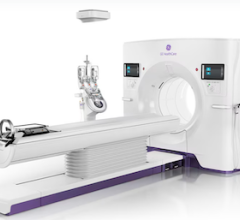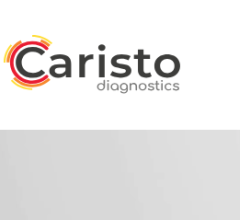GE Healthcare has launched its new LightSpeed VCT XT, the industry’s first CT scanner that maintains outstanding image quality while reducing a patient’s radiation exposure by up to 70 percent for diagnostic cardiac scans. The company unveiled the technology this week during the annual meeting of the Radiological Society of North America in Chicago.
Capable of capturing images of the heart and coronary arteries in as few as five heartbeats, LightSpeed VCT XT now includes hardware and enhanced applications that will allow users to add the clinical value of volume CT by providing new capabilities for imaging the heart, head, and other body parts.
“I’ve been doing Cardiac CT for four years, and this is the most exciting development that I’ve used, having the ability to significantly reduce radiation dose,” said Dr. James Earls of Fairfax Radiological Consultants, Fairfax, Va. “The patient benefit is huge — to be able to reduce the dose by up to 70 percent in some cases really changes the paradigm on how radiologists will approach patients who are presenting with different degrees of risk factors.”
LightSpeed VCT XT is the first multislice scanner capable of performing CT angiographic (CTA) studies where the table moves from one location to the next to cover the entire volume of the patient’s heart, a mode of scanning called step-and-shoot. The LightSpeed VCT XT tracks a patient’s heart rate real-time so the X-ray and acquisition time is driven by each individual patient, enabling clinicians to obtain high quality images with a very low dose exposure.
“Based on over 100 patients scanned with our new system, we were able to obtain high image quality for a wide range of patient sizes while the average radiation dose was about 5 mSv with a range of 1 to 9 mSv,” said Dr. Jean-Louis Sablayrolles, Head of CT Cardiac Imaging Radiology at the Centre Cardiologique de Nord (CCN) in Saint-Denis, France.


 February 02, 2026
February 02, 2026 









